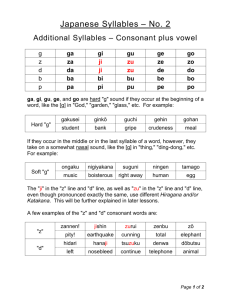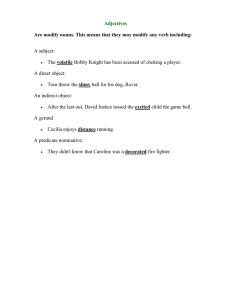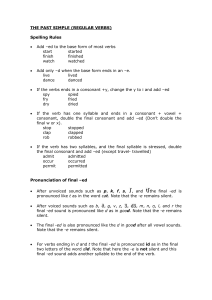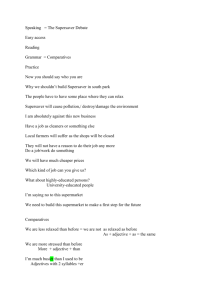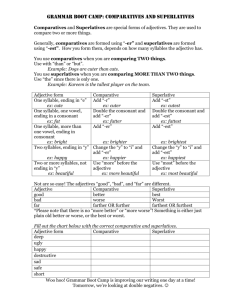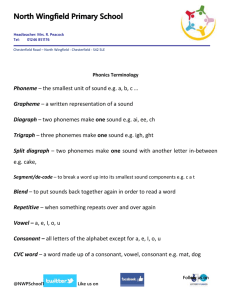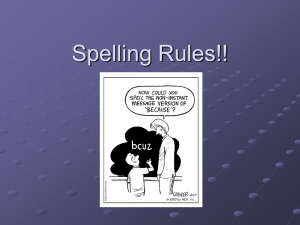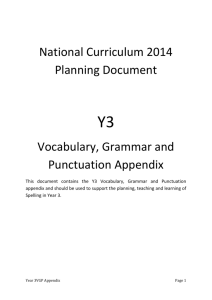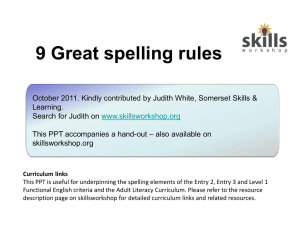Spelling 1 -Double Consonants
advertisement
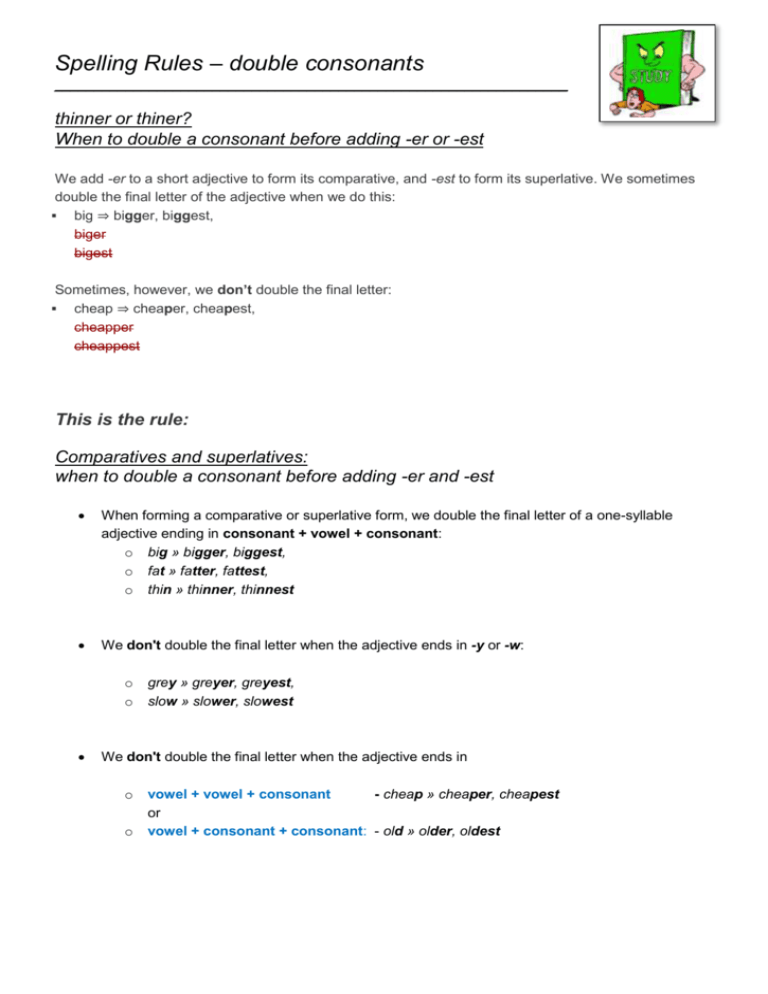
Spelling Rules – double consonants _________________________________________________________________ thinner or thiner? When to double a consonant before adding -er or -est We add -er to a short adjective to form its comparative, and -est to form its superlative. We sometimes double the final letter of the adjective when we do this: big ⇒ bigger, biggest, biger bigest Sometimes, however, we don’t double the final letter: cheap ⇒ cheaper, cheapest, cheapper cheappest This is the rule: Comparatives and superlatives: when to double a consonant before adding -er and -est When forming a comparative or superlative form, we double the final letter of a one-syllable adjective ending in consonant + vowel + consonant: o big » bigger, biggest, o fat » fatter, fattest, o thin » thinner, thinnest We don't double the final letter when the adjective ends in -y or -w: o o grey » greyer, greyest, slow » slower, slowest We don't double the final letter when the adjective ends in o o vowel + vowel + consonant - cheap » cheaper, cheapest or vowel + consonant + consonant: - old » older, oldest Spelling: when to double a consonant before adding -ed or -ing to a verb We add -ing to a verb to form its present participle, and -ed to regular verbs to form the past simple. When doing this, we sometimes double the last letter of the verb, as in these examples: stop ⇒ stopped, stopping stoped / stoping refer ⇒ referred, referring refered / referring Sometimes, however, we don’t double the last letter, as with the verb visit: visit ⇒ visited, visiting visited / visiting Here’s the rule: When to double a consonant before adding -ed and -ing to a verb We double the final letter when a one-syllable verb ends in consonant + vowel + consonant.* stop, rob, sit stopping, stopped, robbing, robbed, sitting We double the final letter when a word has more than one syllable, and when the final syllable is stressed in speech. beGIN, preFER beginning, preferring, preferred If the final syllable is not stressed, we do not double the final letter. LISten, HAPpen listening, listened, happening, happened In British English, travel and cancel are exceptions to this rule: travel, travelling, travelled; cancel, cancelling, cancelled. * We do not double the final letter when a word ends in two consonants (-rt, -rn, etc.): start – starting, started; burn - burn, burned. * We do not double the final letter when two vowels come directly before it: remain – remaining, remained. * We do not double w or y at the end of words: play – playing, played; snow - snowing, snowed. Spelling: -ly endings of adverbs Forming an adverb from an adjective is not usually a problem – we simply add ‘ly’: slow becomes slowly, quick becomes quickly, etc. Adjectives ending in –e, –le and –l, however, can cause problems. Here are some simple rules: When an adjective ends in -e, we simply add ly to form the adverb: polite definite absolute complete politely definitely absolutely completely Be careful when an adjective ends in -le. We remove the e and add y to form the adverb: probable possible terrible reasonable probably possibly terribly reasonably Don't be confused by adjectives that end in -l. Simply add ly and the adverb will then end in -lly: hopeful beautiful helpful careful hopefully beautifully helpfully carefully
